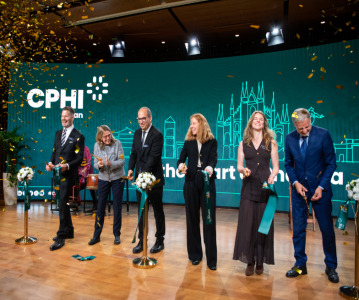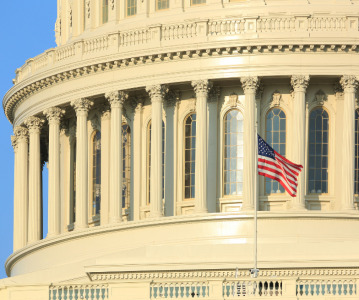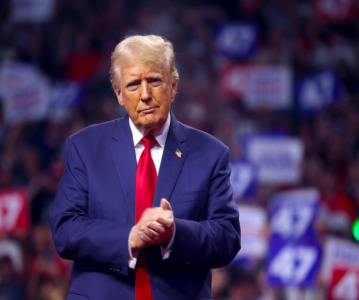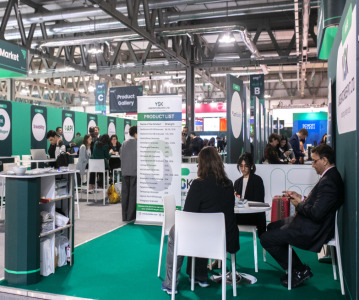Strong Pipeline of Monoclonal Antibodies (mAbs) Biosimilars in the US and Europe Lends Impetus to Global Market

The imminent entry of several companies, including Big Pharma, small biotech and generic participants, into the global biosimilars space will propel the market towards exponential growth. Already, Indian groups such as Dr Reddy’s Laboratories, Biocon and Reliance Life Sciences are making a concerted effort to enter the European market. Although these companies have not yet penetrated the European market because of the stringent regulatory pathway, new product launches are expected in the mid-term.
Biosimilar markets in countries such as the US and Japan are also expected to grow exponentially with more clarity on the regulatory pathway.
New research from Frost & Sullivan’s Analysis of the Global Biosimilars Market finds the market earned revenue of about $1.2 billion in 2013 and estimates this to reach approximately $24 billion in 2019. Untapped US markets with a strong biosimilars pipeline, as well as markets in Asia-Pacific and Latin America with a low cost of manufacturing will afford key growth opportunities.
“On one hand, the market is powering ahead regarding the strength of participants’ global expansion strategies, and, on the other, it is still beset by traditional patent-infringement issues,” said Frost & Sullivan Healthcare Senior Research Analyst K. Srinivas Sashidhar. “Moreover, the strategies adopted by innovator companies need to be taken into account. For instance, Johnson & Johnson has extended the European patent life of its innovator drug Remicade until February 2015, thereby delaying the launch of Hospira’s biosimilar monoclonal antibody (mAb) Inflectra and Celltrion’s biosimilar mAb Remsima.”
To further reduce the time to market, companies should also explore opportunities in mergers and acquisitions and alliances with companies having expertise in biosimilars manufacturing and development like Teva’s alliance with Cephalon and Lupin Pharmaceuticals’ alliance with Neuclone.
“In addition to mAbs, follitropins, interferons and low molecular weight heparins are likely to emerge in the long run,” added Sashidhar. “However, some companies may focus on specific therapeutic classes depending on their capabilities and strategic fit.”
Related News
-
News WuXi to sell CGT manufacturing unit to US-based Altaris LLC
At the tail end of 2024, Chinese-based CDMO WuXi AppTec announced the signing of their deal with private equity firm Altaris LLC, confirming the sale of WuXi Advanced Therapies, the cell and gene therapy manufacturing arm of WuXi AppTec. -
News Women in Pharma: Our hopes for 2025 and beyond
Our last instalment for 2024 of the Women in Pharma series brings you messages direct from the Informa Markets CPHI team as they discuss the advice and insights they have carried throughout their roles working at CPHI, and what they hope to see for the... -
News CPHI Milan Wrap-Up Report: Conference Highlights
Discover the emerging and trending topics of the pharmaceutical industry with our CPHI Milan Conference Highlights, with exclusive insight from pharmaceutical leaders and experts! -
News BIOSECURE Act not included in key defense spending bill for 2025
On December 7, 2024, the Biden administration revealed the 2025 National Defense Authorization Act, an annual defense bill specifying the budget and expenditures of the US Department of Defense. The controversial BIOSECURE Act was notably missing from ... -
News Lessons from CPHI Milan 2024: Sunny Intervals for Pharma Manufacturing?
As the 2024 CPHI conference wrapped up in Milan, we caught up with L.E.K. Consulting – a global strategy consulting firm with deep expertise in pharma manufacturing – to discuss evolving market perspectives and business outlook. -
News Trump 2.0: What does the US election result mean for the healthcare industry?
After Trump won the Presidential election in the US in early November, we take a look at some of the implications a new Trump administration could have on the health and pharmaceutical industry, and on US patients. -
News Women in Pharma: Reflections from Behind the Scenes
In this instalment of our monthly series, the team that brings you the Women in Pharma series each month sits down for a heart-to-heart on what the series means to them, and how they hope to continue their work in the future. -
News Scaling the Industry: CPHI Scale-Up Market interview with YSK Laboratories
For the first time, CPHI Milan hosted the CPHI Start-Up Market, expanding support for emerging and small-sized enterprises in their transition to the next level of growth. In this interview, we spoke with Yuvansh Khokhani, Managing Director of YSK Labo...
Position your company at the heart of the global Pharma industry with a CPHI Online membership
-
Your products and solutions visible to thousands of visitors within the largest Pharma marketplace
-
Generate high-quality, engaged leads for your business, all year round
-
Promote your business as the industry’s thought-leader by hosting your reports, brochures and videos within your profile
-
Your company’s profile boosted at all participating CPHI events
-
An easy-to-use platform with a detailed dashboard showing your leads and performance
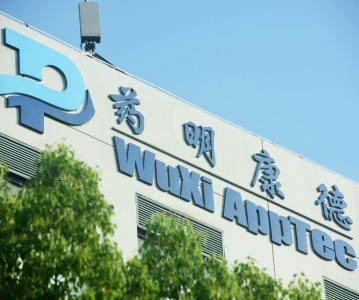
.png)
